
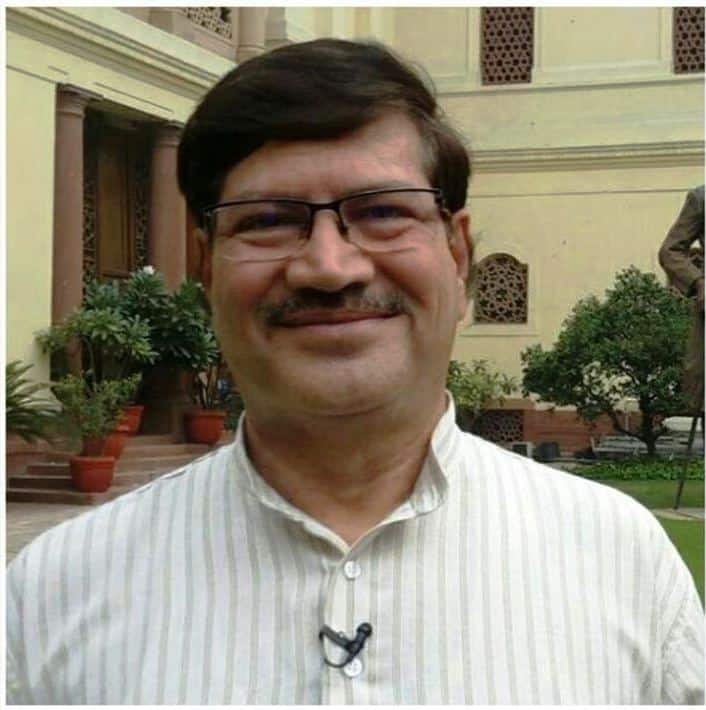
Jo chala gaya usey bhool ja/ Hind ko apni Jannat bana! – Maulana Azad
(Forget all those who had left/ Treat India as your only trust)
“For a Muslim, the best country is India and Hindu — the best friend!” —
Partition backgrounder by FIROZ BAKHT AHMED as per the description by his mother (wife of Maulana Azad nephew, Mr Nooruddin Ahmed) and aunt for preferring India to Pakistan despite lucrative packages in the name of religion from Karachi
Indian Muslims different from Ummah, culturally close to Hindus.
“The Muslim identity of India is a thoroughly Indian identity, very different from the Islamic identity of other Muslim countries, that term it as Ummah, a global community.” Late, Nazuk Jahan Begum, my mother often told me. She explained me that a Muslim of Punjab, will be more akin to a Hindu of Punjab in habits of food, clothing, laguage traditions etc than compared to a Muslim of West Bengal. This is known as cultural nationalism.
She had often said that she could have put me as a student in Habib School in Karachi or in Aitchison College or Lawrence College in Lahore as there were many offers at that time even many years after the partition but for her love for the homeland, she stuck with the Indian tri-colour. My maternal grandmother Amjadi Begum petrified of the 1947 death and disaster, asked her two daughters Nazuk Jahan Begum (my mother), Qaisar Jahan Begum (my aunt) and a son, Mohammed Ali Khan (my maternal uncle) during the turmoil, to stay loyal to India amidst chaos and confusion of partition.
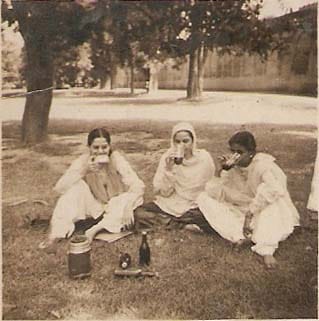
Maulana Azad’s historic Jama Masjid address
My aunt told me that it was the Maulana Azad’d speech delivered in the aftermath of the partition, turmoil, from the steps of the historic Shahjahani Jama Masjid that forced many other families of old Delhi, UP and Bihar, who had to take the train to Lahore from the Delhi Main (old Delhi railway station) to open their bistarband (luggage) supposed to be heading for Lahore and Karachi.
Azad reprimanded those Indian Muslims who were weighing wings to cross the border for greener pastures. He was upset about his co-religionists who vied for Pakistan and stated: “Do you remember? I hailed you, you cut off my tongue, I picked my pen, you severed my hand, I wanted to move forward, you broke off my legs; I tried to run over, and you injured my back. When the bitter political games of the last seven years were at their peak, I tried to wake you up at every danger signal. You not only ignored my call but revived all the past traditions of neglect and denial. As a result, the same perils surround you today, whose onset had previously diverted you from the righteous path.”
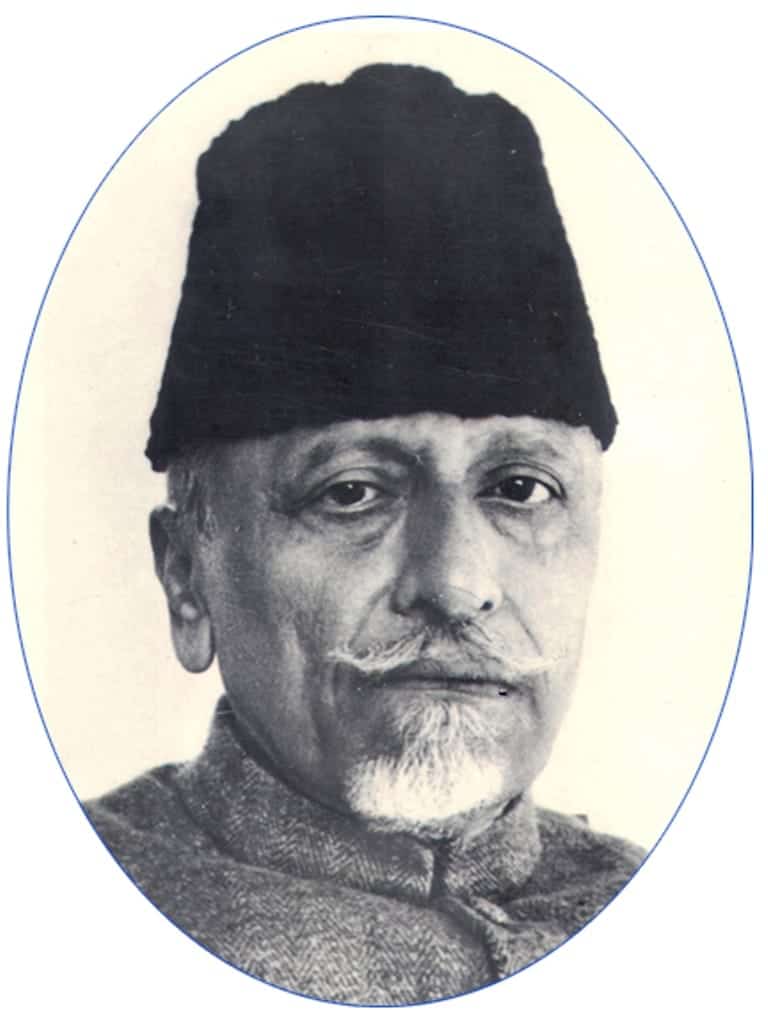
Continued Maulana in his impeccable flow: “Where are you going and why? Raise your eyes. The minarets of Jama Masjid want to ask you a question. Where have you lost the glorious pages from your chronicles? Was it only yesterday that on the banks of the Jamuna, your caravans performed wuzu? Today, you are afraid of living here! Remember, Delhi has been nurtured with your blood. Brothers! Create a basic change in yourselves. Today, your fear is misplaced as your jubilation was yesterday.”
Maulana Azad had said: “My dear brothers today you are leaving our country; did u ever think what will be the outcome of this? If you go away the Muslims in India will become weak. Listen to me carefully, Hindu can differ with your religion but they can’t differ within your qaumiyat (clan), but in Pakistan you will face the difference of the clan as they’ll treat you as chattel. Always remember, for a Muslim, the best country ids India and best friend, Hindu!”
He also said “What makes me more sad, is that some people have mixed with British and made the ijtemaiyat (togetherness) of Muslims weak.”
1947, most traumatic and harrowing massacre and exodus
No one in India and Pakistan can deny that the Partition of 1947 was a trauma. The large mass of people involved in this two-way exodus was permanently damaged by it. Remembering it is not such a good thing if it intensifies the hatred India and Pakistan have nurtured for each other.
For my mother Nazuk (died 1986) and aunt Qaisar (died 1994), the partition of the subcontinent in 1947 was the single most traumatic happening in the Indian history. The violence it unleashed was unprecedented and barbaric. The memories of those days still mark the social behaviour, the political judgments and the sense of moral rightness of everyone in the region according to both sisters.
When Qaisar Jahan spurned Radio Pakistan offer
My mother and aunt (a triple MA in Economics, Urdu and History from AMU and Delhi University) were offered the best packages in the name of religion in the aftermath of the Partition but they voted for India. Qaisar Jahan didn’t want to take a chance in a newly created nation leaving the cozy warmth and safety of her home town in Delhi. In spite of the fact that she was also offered four Dakota airlines Delhi-Karachi air tickets for her family but declined having well understood the fact that according to the supporters of Pakistan, the newly created el dorado would be nothing but turmoil. Her hunch was right and today, we see that in Pakistan, one Muslim is taking the life of another.
India, the only homeland!
However, they stuck to their homeland, come what may in the spirit of this poets who had recited the couplet, “Jo chala gaya usey bhool ja/ Hind ko apni jannat bana!” (Forget all those who had left/ Treat India your only trust)
How about the Pakistani flag fluttering Kashmiri brethren learning a lesson from it! As if this were not sufficient, she was also offered the editorship of a huge publication form in Pakistan, now, Chattan Publishing House. Reason was that she had lost her father Ahmed Nabi Khan, a cavalryman in the Englishmen’s army, and had to look after her mother and elder sister Nazuk (later my mother). Her brother Mohammed Ali Khan was taking care of his own family.
The partition stories narrated to me by them during a family discussion, testified reflections on the irrational passions which erupted so violently amongst the Hindu and Muslim communities, that forgetting their humanity, their religious faith and their cultural pride, they began to stalk and kill each other. The same Hindu-Muslims who were ready to sacrifice for each other, were after each other’s jugular.
Humanity brought to knees
Qaisar would often wonder: “Why were they tempted by the cowardice of the killer, the ravings of the religious fanatic and the frenzy of the mob? Why did the light of reason, decency and piety which had guided their struggle against colonial rule and given it dignity, fade so suddenly?” Nevertheless, she loved India for its secularism and safety and knew that Muslims and Hindus over the centuries have existed like sugar and milk, would keep doing so.
It was a rare feat that Qaisar Jahan, a Muslim lady, had studied to such higher levels in those days when the Muslim ladies weren’t even allowed to peep outside their houses’ windows.
Maulana Azad’s niece-in-law
The most important turn in the life of Qaisar came during the early 1950s, when she, along with her older sister, Nazuk, went to an exclusive women’s fair in Purdah Bagh, in Delhi, just at the end of Red Fort, where Darya Ganj begins, just adjacent to Darya Ganj over bridge. This was in the aftermath of Eid festival when the walled city ladies go to the garden for having gala time and picnic. Incidentally, Maulana Azad’s middle one of the three sisters, Fatima Begum (pen name — Aarzu Begum), also came to the same fair with her sister. Incidentally she was on the lookout for Azad’s only nephew Nooruddin Ahmed’s bride. When she saw Qaisar and Nazuk, she got dumbstruck by their inimitable charm and bewitching beauty. She drew closer to them, introduced herself and gave the address of Maulana Azad’s residence, 4 King George Road, New Delhi (next to today’s Vigyan Bhawan).
Women don’t work in Maulana azad family!
For Qaisar, this was a shot in the arm as she was already planning to work as a professor or teacher and if through Maulana Azad, she would get a recommendation letter, nothing like that! Both the sisters went to Azad’s residence and without telling the purport of her desire to get her nephew Nooruddin hitched to one of the sisters, she called him. Nooruddin gave consent for the younger sister, Qaisar Jahan. She also requested for a recommendation of the education minister.
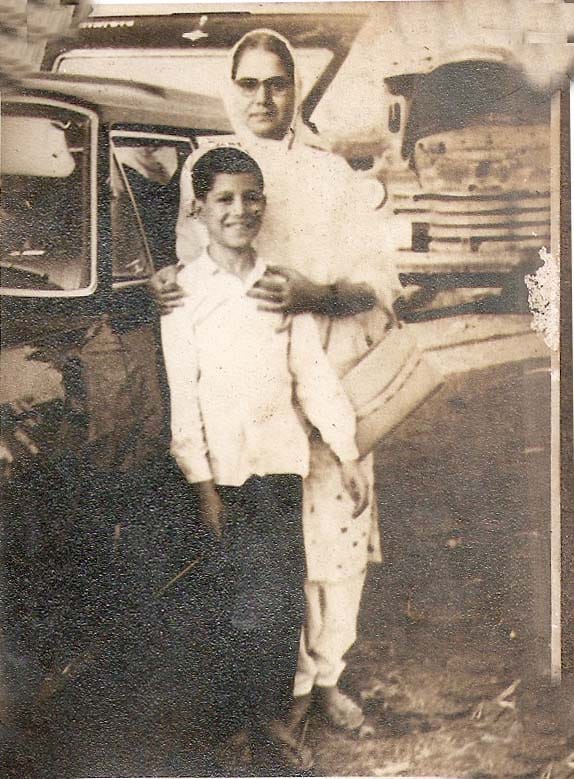
Though Nooruddin did fall in love at first sight, nevertheless, this demand of a letter from Qaisar actually dithered him as he didn’t want Qaisar to work. The exchange of letters between Noorudin and Qaisar, via Nazuk (who used to write for Qaisar) continuedfor almost two years , that is 1954-1956. Nooruddin, who used to send greeting cards and many other gifts, including freshest fruits, even sent a metallic wire for the size of the gold ring for engagement. Though he was miffed that Qaisar was adamant yet, he remained hopeful. He even sent her a message through Chait Ram, the driver who drove the huge black Chevrolet car that Azad would like to accept her as his niece-in-law but on condition that she would not do service.
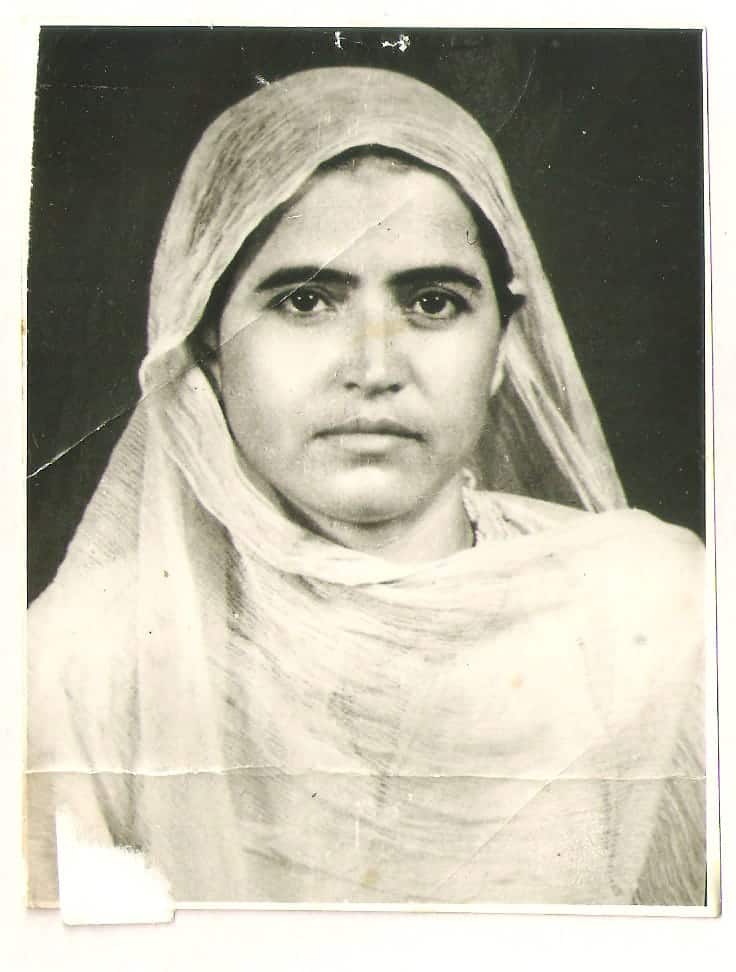
The reprimand didn’t work even from the man of the stature and caliber of a stalwart like Azad, one of the tallest of freedom fighters and a litterateur, as she wanted to work as an Economics lecturer at Indra Prasth College, and she said ‘no’ to Nooruddin. After this, Nooruddin shifted his attention to the older sister, Nazuk Jahan and later, clandestinely married her, may be, with a design to avenge the affront by Qaisar.
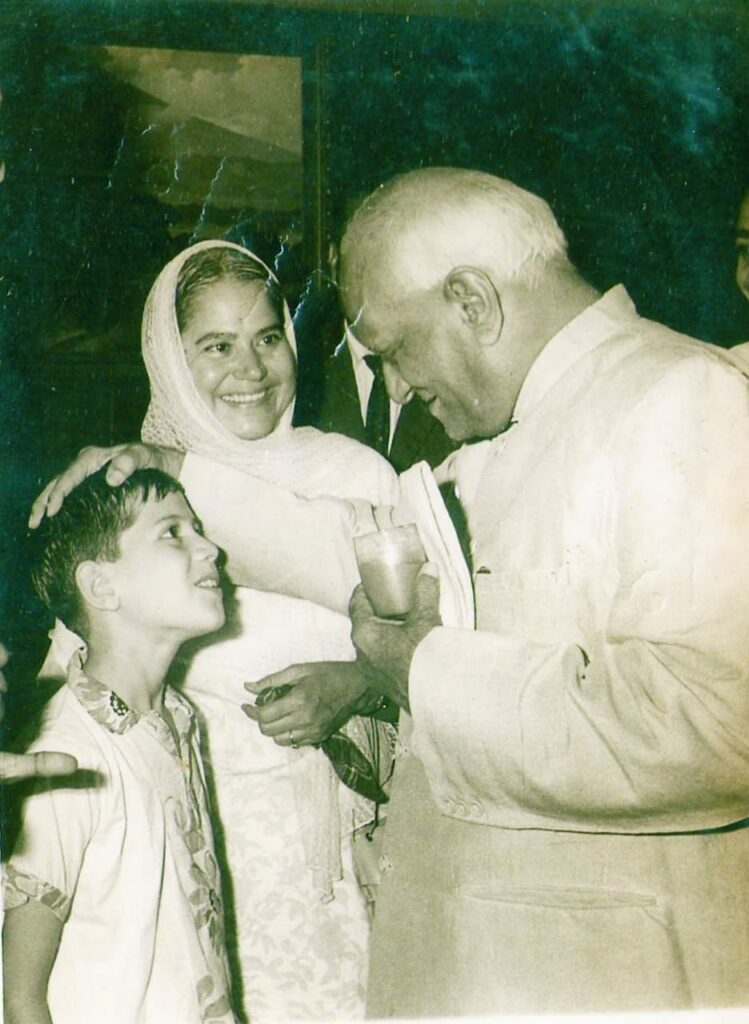
The Partition frenzy
I still remember that both my mother and aunt being educated, were abreast with what was happening around and read the English daily The Statesman and Hindustan Times regularly for knowing the latest. These ladies defied the Muslim League and staunchly supported the Congress as Azad was their political hero. They supported Azad who would say, “Water cannot be cut in twain!” But it was cut and there were terrible riots on both sides of the Radcliffe Line.
Qaisar Jahan, a very knowledgeable lady often would discuss the man who was put in charge of partition by the British — Sir Cyril Radcliffe. Radcliffe had never been to India and was given little time to implement the partition. He worked with outdated maps and census figures. The Radcliffe Line, as it is known, became the border between India and Pakistan.
“The British simply didn’t want to get their hands dirty in this business of keeping Indians from going at each other’s throats with the result that the British military did not actually try to prevent people from massacring each other or abducting each other or taking possession of property,” Qaisar would often say.
Worst exodus of the world history
All those accounts conveyed to the author, are the grim reminder of how urgent it is not to forget the horrors of 1947. His mother would describe the gory sight of trains of mauled, murdered, mutilated and dead Hindus from the Pakistan side and trains from India would be similar with Muslims’ dead bodies.
My maternal grandmother, Amjadi Begum would tell others that partition of India left both India and Pakistan devastated. The process of partition had claimed many lives in the riots. Many others were raped and looted.
Women, especially, were used as instruments of power by the Hindus and the Muslims; “ghost trains” full of severed breasts of women would arrive in each of the newly-born countries from across the borders.
Hindu revivalists also deepened the chasm between the two nations. They resented the Muslims for their former rule over India. They also wanted to change the official script form the Persian to the Hindu Devanagri script, effectively making Hindi rather than Urdu the main candidate for the national language.
Ideals for Muslims
Muslim revivalists on the other hand vied for a new el-dorado in the form of Pakistan. They thought that migrating there would mean a life on the bed of roses. It was another thing as my aunt had pointed out that Muslim League’s experiment would fail — and it did. History proved that. Partition didn’t deliver goods for both India and Pakistan as it turned into a damp squib.
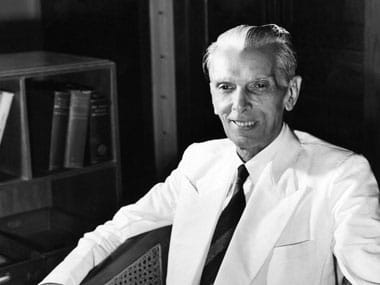
Pakistan’s founder, Mohammed Ali Jinnah, said the goal of a separate Muslim state should be peace within and peace without. But that goal has proved elusive in the past six decades. Qaisar was almost allergic to Jinnah and coined the title: Qatil-e-Azam (With due apologies) for him replacing, Qaid-e-Azam! Till my mother and aunt died, they had believed that Pakistan was created as result of religious frenzy, would be a jilted experiment and never succeed — a prophecy that has proved true. This is a message for all those, who crave for azadi by creating the not only the road but even mental blocks of Shaheen Bagh or mislead the community in matters like hijab, azan etc. Finally, Muslims’ ideals mustn’t be rabble rousers like Aurangzebs, Owaisis, Tauqirs, Madanis, Shafique-ur-Rehman Barqs Azam Khans etc but Maulana Azad and Dara Shikoh.
(Firoz Bakht Ahmed is the former chancellor, MANUU, a commentator on social issues and the grandnephew of Maulana Abul Kalam Azad and can be contacted atfirozbakhtahmed08@gmail.com)
Firoz Bakht Ahmed, A-202 Adeeba Market & Apartments, Main Road, Zakir Nagar, New Delhi 110 025. Phone: 26984517 and 98109-33050, E-mail:firozbakhtahmed08@gmail.com
Disclaimer: Views expressed are personal

